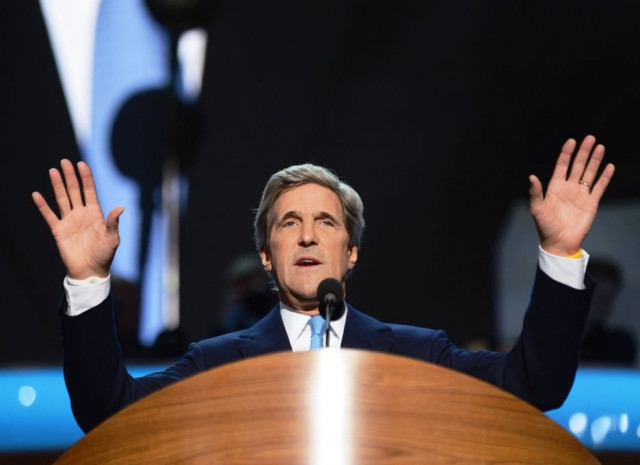The US and the Afghan Taliban
Despite the hype created around the proposed talks with the TTP, it may just turn out to be an exercise in futility.

Secretary Kerry’s optimism notwithstanding, it remains to be seen what the framework for talks between the US and the Afghan Taliban is. PHOTO: AFP/FILE

Secretary Kerry’s optimism notwithstanding, it remains to be seen what the framework for talks between the US and the Afghan Taliban is and whether there are conditions attached to these parleys. For example, what are the key areas of discussions and can these talks lead to a durable post-Nato stasis. Would the larger questions remain shrouded in mystery: would the Afghan Taliban accept the existing constitution and what would be their stance on women’s participation in politics? Would the Afghan Taliban stick to agreements, or renege on the commitments made? What would be the fate of non-Pashtun political players in these arrangements? Most importantly, what would be the relationship between the Afghan Taliban and their Pakistani counterparts wreaking havoc in the neighbouring country?
In Pakistan, this olive branch to the Afghan Taliban is viewed as some sort of a justification to engage in talks with the Tehreek-e-Taliban Pakistan (TTP). This is somewhat problematic, as the TTP does not agree to the Constitution of Pakistan, and wants to undo the state structure. The Afghan Taliban do not reside in the ungoverned corners of the United States, therefore, talking to them is definitely not the same. Despite the hype created around the proposed talks with the TTP, it may just turn out to be an exercise in futility as the earlier half-a-dozen peace agreements with them failed. This is an existential crisis that Pakistan will have to grapple with, regardless of what happens between the US and the Afghan Taliban.
Published in The Express Tribune, May 29th, 2013.













COMMENTS
Comments are moderated and generally will be posted if they are on-topic and not abusive.
For more information, please see our Comments FAQ